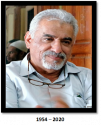The Khoja Studies Course is a thematic approach to study the community history from its genesis to institutionalization. Secure your place now. April - June 2018. Click here for further details.
December’s Khoja Studies conference certainly made clear that there is a rich history of Khoja heritage that often goes unnoticed. As a community, post the Iranian revolution many Twelver Khojas adopted a much more visible and defined Islamic identity. As a consequence, most of the gatherings that are hosted within the community revolve around an Islamic theme. And this can be credited for a rich and accessible understanding of our Muslim identity and Islamic history.
The community centres aren’t often used as spaces to explore and learn about cultural heritage and histories. My experience of understanding cultural heritage is through cultural indicators such as food, clothing and customs. And further, through narratives and oral history told by generations of family and community friends.
The conference was certainly an eye-opener. An entirely different approach to what I knew of the Khoja world. There are academics from a range of backgrounds that dedicate their lives to studying Khoja heritage and culture – a history that belongs to you and me. And there is so much depth and richness in that history. Concepts, texts, languages, historical events that I for one had never come across.
Examples of difficulties and triumphs that are a worthwhile lesson.
Histories worth celebrating and exploring.
Heritage allows for a greater scope of attachment – with the various indicators that make up cultural heritage, there will always be one that someone can relate to. For example, for me, I enjoy the arts, language and literature aspect of cultural heritage. I also enjoy narrative history, listening and reading stories of living. Connecting via a deeper understanding of texts, art, and narrative, reframes identity and heritage providing a new platform to further learn and be enriched.
That may well be the crux of it. The necessity of spaces for Khojas – young and old alike, to explore, share and celebrate a heritage that was the journey of our forefathers. I expect there is so much to be remembered. And even more to hold dear and celebrate.
[This is the final in a series of reflections by Sister Fatema Zehra Bandali. If you missed part one, you can read this here. To read part two, click here. For more information on the conference please visit http://khojastudies.org]
Related News
Related News
We are grieved to hear of the passing away of Marhum Mohamed Raza Khamis in Madagascar. The World Federation have released an obituary that describes his contributions to our community and his achievements. Read it here.
Every Monday we will release one thoughtful video from now until the rest of the year. Find out more here.












